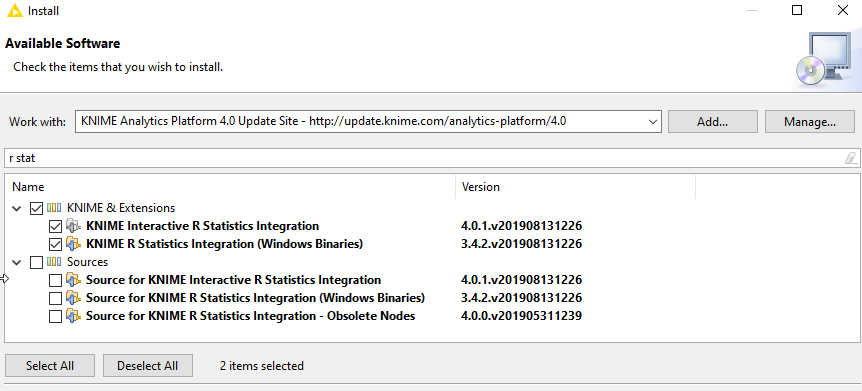I wanted to find out what people were saying on the facebook pages of extreme political parties. At this stage I wasn’t bothered so much about what the party was saying, but what the comments on the posts where saying. The task was to find n-grams in a CSV file and I decided to do it in R. Originally the CSV was created from comments on 10 pages of BNP Facebook posts, I generated the CSV quite quickly using an application called FacePager, it was very easy to do and if you are interested you can find instructions on this post here.
The final script is here and is quite easy to follow:
options(mc.cores=1)
#import packages
install.packages("tm")
install.packages("RWeka")
install.package("slam")
library(tm)
library("RWeka")
library("slam")
#import csv
mydata = read.csv("bnpwcomments.csv", sep = ";") # read csv file
#prepare text
corpus <- Corpus(VectorSource(mydata$message)) # create corpus object
corpus <- tm_map(corpus, mc.cores=1, removePunctuation)
corpus <- tm_map(corpus, removeNumbers, mc.cores=1)
corpus <- tm_map(corpus, removeWords, stopwords("english"), mc.cores=1)
# convert all text to lower case
corpus <- tm_map(corpus, tolower, mc.cores=1)
#proplem with to lower means we need to make it type of plain text document again
corpus <- tm_map(corpus, PlainTextDocument)
#make the term document matrix
tdm <- TermDocumentMatrix(corpus)
#find the frequent terms
findFreqTerms(tdm, lowfreq = 500)
#tokenizer for tdm with ngrams
BigramTokenizer <- function(x) NGramTokenizer(x, Weka_control(min = 4, max = 4))
tdm <- TermDocumentMatrix(corpus, control = list(tokenize = BigramTokenizer))
findFreqTerms(tdm, lowfreq = 15)
#create dataframe and order by most used
rollup <- rollup(tdm, 2, na.rm=TRUE, FUN = sum)
mydata.df <- as.data.frame(inspect(rollup))
colnames(mydata.df) <- c("count")
mydata.df$ngram <- rownames(mydata.df)
newdata <- mydata.df[order(-count),]
newdata<-newdata[order(newdata$count, decreasing=TRUE), ]
To change the number of words in the sequence you want to look for this line and change the number to whatever you want:
BigramTokenizer <- function(x) NGramTokenizer(x, Weka_control(min = 4, max = 4))
I haven’t finished playing with the data yet, but if you are interested I have dug the most popular phrases out, it is quite obvious that ‘at the end of the day’ to the BNP it’s a case of us Vs them.
3 Word phases
Count Phrase
156 in this country
130 all the way
103 a lot of
99 bnp all the
89 to do with
87 got my vote
85 in our country
80 in the uk
78 dont like it
78 if you dont
75 the bnp are
75 the rest of
75 the right to
73 we need to
72 the british people
4 word phrases:
Count Phrase
49 in our own country
47 nothing to do with
43 if they dont like
39 if you dont like
35 the rest of the
34 the end of the
32 have the right to
30 if you want to
30 in the first place
30 they don’t like it
29 at the end of
29 end of the day
28 in the name of
28 this is our country
26 our way of life
26 send them all back
5 word phrases:
Count Phrase
26 at the end of the
26 if they dont like it
26 the end of the day
16 has nothing to do with
14 if you dont like it
12 for the sole purpose of
12 sole purpose of child exploitation
12 the sole purpose of child
11 bring back the death penalty
6 word phrases
Count Phrase
25 at the end of the day
12 for the sole purpose of child
12 the sole purpose of child exploitation
8 any plans for you to review
5 for you to review cannabis laws


3 Comments
Lorna M. Campbell · June 19, 2014 at 5:29 pm
Fascinating! It would be interesting to compare this data to other political parties to see if there is any noticeable difference.
David Sherlock · June 19, 2014 at 10:29 pm
I wondered about that, I think it’s a good idea . Wonder if we can use data mining to explore what sparks extremism.
More reoccurring phrases in the Facebook comments section of political parties | David Sherlock · June 30, 2014 at 3:58 pm
[…] while ago I used a combination of Facepager and R to find reoccurring phrases in the comments section of the BNP’s Facebook page. I had this […]